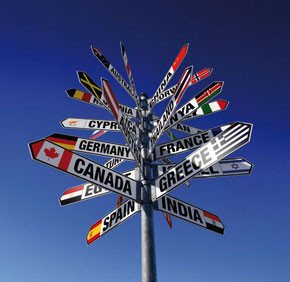From the behaviours today’s celebrities I feel that todays
culture is more and more about instant information predominantly fed through
the ‘Twittersphere.’
The celebrity culture changes though. Two years ago it was
to join a radical religion, five years ago it was to adopt African children,
and ten years ago it was copy what Justin Timberlake was doing.
Though when trying to answer the question, ‘Which comes
first, the celebrity of the culture?’ I cannot help feeling that it’s slightly
similar to the chicken and the egg theory (am I stretching this too far?).
In my tutorial this week the question “Who was the worlds
first celebrity?” was asked. After some thought, and bypassing of Jesus, we
came to think it was in face Charlie Chaplin; the first great Hollywood actor.
If this is the case, then the culture of Hollywood movies in
the United States created the ‘celebrity’.
So moving back to today’s era. The celebrity culture of
building an extra-textual version of public individual occurs over social
media, video and photos included.
 |
| http://cdn.crushable.com/files/2012/01/lady-gaga-kermit.jpg |
Think of Lady Gaga, her appearance is a great example of an
extra-textual version of somebody. The paparazzi, and public allow her to live
in the culture specially created for her through the gossip magazines,
newspapers and social media.
 |
| http://gottalovegossup.com/wp-content/uploads/2010/01/Gossip-Magazines.jpg |
The culture, which is continually created for the celebrity,
will continue to have an impact through the media. The current alternative
culture for the celebrity will soon be eradicated for something different.
In my opinion, something related to social media.
References
Crushable, 'Lady Gaga Kermit', retrieved 6 September <http://cdn.crushable.com/files/2012/01/lady-gaga-kermit.jpg>
Gotta Love Gossup, 'Gossip Magazines', retrieved 6 September <http://gottalovegossup.com/wp-content/uploads/2010/01/Gossip-Magazines.jpg>


